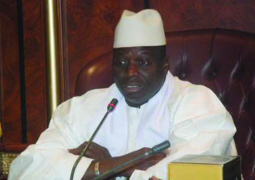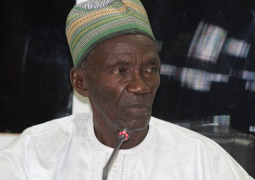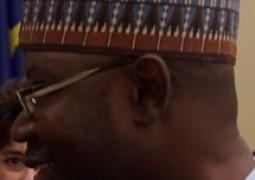
The World Bank supported The Gambia with US$30 million for SSNP while The Gambia government contributed US$1 million geared to support vulnerable poor households within the 20 poorest districts of The Gambia.
She explained that she traveled across the country to see the hard work and the rollout of the cash transfer. Christabel added that she met with many communities while stating that she was very impressed with how the process is handled.
Madam Christabel affirmed that most of the beneficiaries are women, saying she was impressed because the recipients know how much money they are supposed to get, should save and invest some of the money.
"That's impressive and it shows that the project is doing a great job in discussing with the beneficiaries on the importance and the project objectives. During the cash rollout, there was monitoring going on to ensure the right people are getting the money and the payment service providers were being very effective."
On steps to extend the project, she highlighted that the initiative started during the Covid-19 and the amount given to the extreme poor as transfer value is much higher than most West African countries. She continued that she sees an opportunity in The Gambia for them to realise a change in the future.
"Let us not be too reliant on the outside world, there is a lot we can do. The little you get, you can make a lot out of it and I want people to focus on what can be made out of it like the changes in our behaviours, mothers breastfeeding for a longer time to improve nutrition, parents playing with their children and more."
She reiterated that those are more important than the cash while urging beneficiaries to focus on those and how to break intergenerational cycle of poverty by taking their children to school.
Christabel confirmed that World Bank's commitment will never die out, saying the Bank has been with The Gambia for a long time and it would continue. She encouraged Gambians to make efforts and improve themselves.
Dwelling on the need to intervene in Urban poverty, she told this medium that they have conducted some studies on how to target the Urban poor, adding there has been progress.
"The real data shows that where urban poor is high, there is still more rural poverty. That is our next step and we have discussed it with the team already. In our new programming, we will be looking at how to tackle urban poverty. Youth employment is a big thing and we are convinced that if we can identify some of the ways to improve livelihoods of the urban areas, we could even mitigate some of the migration challenges in The Gambia."
When asked why they didn’t build the capacity of rural households instead of giving them cash in hand, Christabel replied that they have started with the foundation in order to get them a healthy meal and then follow other support areas.
"We heard feedbacks of beneficiaries using the Nafa money to improve their livelihood. Our next step is to add a layer and it will be a support towards a skill training, enterprise, and grants."
On World Bank's expectations for the project, she indicated that they wanted the government of Gambia to also invest in the programme by providing cash as a way of supporting sustainability.
Madam Christabel believes that the government has shown high commitment through the programme, saying they have very good collaboration.
"It is very possible to make the change we are looking for because the success of the programme is my success."





